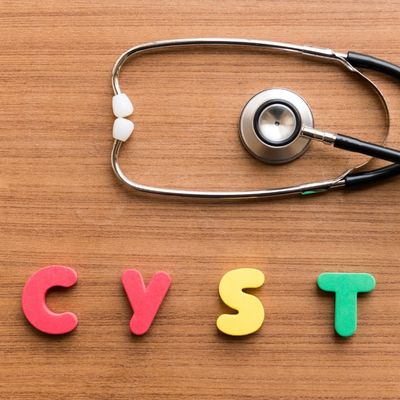Pilonidal cysts have become common and troublesome. And pilonidal cyst removal surgery may be in your best interest. Delaying surgery is understandable, but it can cause more significant consequences.
A Pilonidal Cyst’s symptoms

The degree of the infection will affect the symptoms of a pilonidal cyst. Typical symptoms consist in:
-
The Pain and Sensitivity:
This may be mild to severe and worsen when seated or lying down. Mild, throbbing, or intense pain may radiate to the buttocks or lower back. Pain can greatly impact your quality of life and prevent you from sitting, walking, or sleeping.
-
Redness and swelling:
The cyst’s surrounding area could point to inflammation. The edema can be really severe, which makes comfortable sitting or walking challenging. Skin around the cyst is warm to touch, indicating inflammation.
-
Pus drainage from the cyst:
Particularly in an infected cyst, a little amount of pus may drain from it. This pus could smell bad and include hair or other trash. Along with other symptoms like fever and chills, pus’s drainage can be a clue of an infection. Additionally aggravating the surrounding area and adding more discomfort is the pus discharge.
-
Fever:
This indicates an infection and could also accompany other symptoms including swelling and pain. A fever may indicate a more major infection, such sepsis or cellulitis. Other infection-related symptoms including chills, tiredness, and appetite loss may also accompany a fever.
-
Sitting or Walking Difficulties:
Severe cases might cause the discomfort and swelling to make sitting or walking comfortable becomes difficult. The suffering could be so great that it makes it challenging to go about daily tasks including reporting to work or school. The pain might make wearing tight jeans or undergarments difficult.
Why Delaying Surgery Could Be Dangerous?
Although postponing pilonidal cyst removal surgery could be enticing, one should be aware of the possible hazards. Delaying surgery can cause:
-
Increased Risk of Infection:
You run more danger of infection spreading the longer you wait. More severe symptoms and complications abscess development, cellulitis, even sepsis can follow from this. Significant abscess pain and swelling require drainage and treatment. Untreated cellulitis, a bacterial skin infection, can grow quickly and create major problems. Infection overpowering the organs causes sepsis, a deadly illness.
-
More massive cysts:
The cyst may get bigger and more uncomfortable over time, which would complicate surgery and extend recuperation times. Larger cysts are more prone to get contaminated and generate problems.
-
Other Health Issues:
This includes scarring and fistula development might result from chronic inflammation damaging the surrounding tissue. Fistulas are abnormal connections between organs or the skin. Treating fistulas is difficult and uncomfortable.
-
Adverse Effect on Quality of Life:
A pilonidal cyst can seriously compromise your quality of life. It can make sitting, walking, and participating in daily events challenging. Depression, social isolation, and missed school or job can all follow from this.
-
Increased Risk of Recurrence:
Delaying surgery raises the likelihood of a cyst returning following treatment. This is so because the cyst’s basic cause—ingrown hairs—may still be present.
-
Psychological Distress:
Dealing with a painful and ugly cyst can cause major psychological suffering including worry, despair, and poor self-esteem.
-
Extended Period of Recovery
The extent of the surgery may need to be more substantial the longer a problem is let to advance. Usually involving longer recovery durations after pilonidal cyst surgery, more complicated procedures can cause a patient to miss returning to normal activity.
-
Less Effectiveness of Surgery
Some operations, like those for cancer or heart problems, are most successful when carried out early in the course of the illness. Delaying surgery can cause the condition to advance to a level whereby treatment becomes less successful or more complex.
-
Social and Financial Reperceptions
Delaying surgery can have more general effects such increased time off from work, lower income, or difficulty regularly attending social events. This can influence general quality of living as well as relationships. Moreover, illnesses that get worse over time could lead to more costly treatments later on, therefore aggravating the financial load.
The advantages of early surgery
This entails following major advantages for a timely pilonidal cyst treatment:
-
Early surgical intervention can support:
Surgery can efficiently remove the cyst and reduce pain and discomfort therefore enabling a faster return to regular activities and a notable improvement in general comfort and well-being.
-
Promote Healing:
By eliminating the cause of infection and offering a clean wound environment, surgery can hasten healing. This can help to lower scarring, ease pain, and hasten recovery times.
-
Improve Quality of Life:
By tackling the fundamental problem, surgery can enable you to resume your regular activities and raise your general quality of living. This can include being able to sit comfortably, engage in physical exercise, and participate in social and business events free from constraint or discomfort.
-
Minimize Scarring:
Modern surgical methods including minimally invasive procedures and better wound closure techniques help to reduce scarring, therefore enabling a more cosmetically acceptable result and raising patient satisfaction.
-
Better Mental Health:
Untreated medical conditions might cause mental health issues due to uncertainty and stress. Early surgery might reduce anxiety about problems and give a sense of control. Quick surgery recovery speeds up daily activities, enhancing well-being.
-
Lower Medical Costs:
Surgery may appear pricey, but postponing treatment can increase medical costs. Postponing surgery may need emergency care, longer hospital stays, or more complicated therapies. Early diagnosis can reduce medical costs by averting more intensive treatment.
Pilonidal Cyst Antibiotic Treatment
These antibiotics treat infections at the tailbone. If a pilonidal cyst gets infected or abscessed, cephalexin, clindamycin, or amoxicillin-clavulanate are recommended to minimize inflammation and infection. After cyst drainage, antibiotics are needed to prevent infection. Recurrent cysts may require surgery if antibiotics fail. Complete the antibiotic course as prescribed to avoid problems and ensure effective treatment.
Finish: Don’t Wait; Act Now
See a pilonidal cyst right away if you are coping with one. Early intervention can help to keep your general health better and avoid issues. Allen Kamrava MD MBA uses cutting-edge surgical methods to reduce scarring and eliminate pilonidal cysts. Our experienced surgeons will personalize a treatment plan to your needs and goals. Surgery selection can be challenging, but we can help. Our staff will make your visit and post-op treatment enjoyable.
Start down the path to a life free from pain. Set up a visit right now or call directly at (424) 279-8222.



